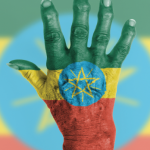For example, Dr. Strangfeld noted that “Less than 50% of German universities have rheumatology programs in place to ensure that the required teaching obligations for rheumatology are met, whereas in Denmark, rheumatology is an important part of medical education, and all Danish universities teach rheumatology.” To enhance the workforce, she said, “The first step we must take is to reach students in medical school and motivate them with information on the rheumatology field, [letting them know] that it is very interesting, exciting [field] to be in.”
In the next few years, demographic change and the anticipated retirement of around a third of the rheumatologists currently working will force us to look for the next generation of rheumatologists.
Focus on Africa
The high burden of serious and often fatal infectious diseases in Africa, such as malaria, tuberculosis and HIV, and the impact of managing these diseases has had on healthcare resource allocation was commented upon by Dr. Paruk. She pointed out the extreme shortage of rheumatologists across much of Africa and cited the many other healthcare challenges faced by rheumatology patients in Africa, including socioeconomic factors, poor state infrastructure and lack of human resources.
Most of the approximately 3,000 rheumatology providers in Africa are in countries with higher incomes, such as North Africa; 12 of the 44 African counties surveyed have only between one and 10 rheumatologists, and 17 have none. At the same time, several countries in East and West Africa have expanded or created new training programs in recent years, including Kenya, Rwanda, Zambia and Ghana.
A very serious issue is loss of trained professionals due to low earning potential and lack of opportunities. “You can train people, but a lack of viable practice and research opportunities often leads to feeling of being unable to deliver adequate care resulting in looking for jobs out of Africa,” said Dr. Paruk. “The shortage of posts and a high demand for rheumatology training, combined with a lack of basic needs to deliver rheumatology care leads to frustration.”
In terms of improving basic care for rheumatology patients, Dr. Paruk noted, “We find that basic courses in rheumatology offered by EULAR, and a recent handbook written by two local experts, Professors Tikly and McGill, about rheumatology in Sub-Saharan Africa have contributed to increasing awareness of rheumatological diseases among primary care providers, who see the vast majority of patients.”



